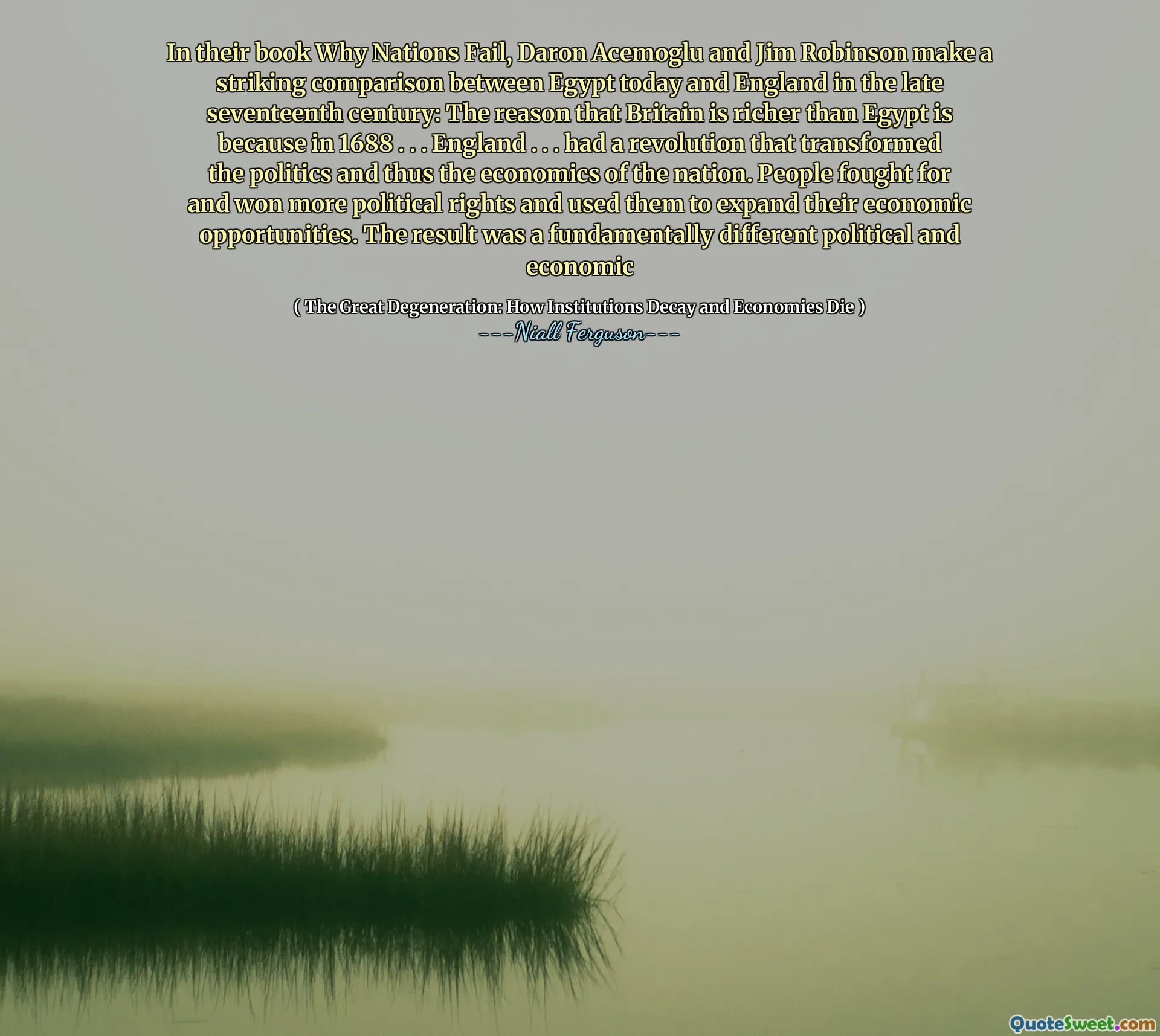
In their book Why Nations Fail, Daron Acemoglu and Jim Robinson make a striking comparison between Egypt today and England in the late seventeenth century: The reason that Britain is richer than Egypt is because in 1688 . . . England . . . had a revolution that transformed the politics and thus the economics of the nation. People fought for and won more political rights and used them to expand their economic opportunities. The result was a fundamentally different political and economic
Daron Acemoglu and Jim Robinson, in their book "Why Nations Fail," draw a compelling parallel between modern Egypt and late seventeenth-century England. They argue that Britain's considerable wealth can be attributed to a pivotal revolution in 1688 that reshaped the nation’s political landscape. This upheaval empowered citizens, granting them greater political rights, which in turn facilitated the expansion of economic opportunities. The authors emphasize that this shift led to profound transformations in both political and economic structures.
Niall Ferguson, in "The Great Degeneration," explores the theme of how institutions can decay and lead to economic decline. He echoes the sentiments of Acemoglu and Robinson, highlighting the importance of strong institutions in steering a nation's course. The contrast between Egypt and pre-revolutionary England serves as a cautionary tale about the necessity of political reform and its influence on economic development, indicating that without robust institutions, countries may struggle to achieve prosperity.











